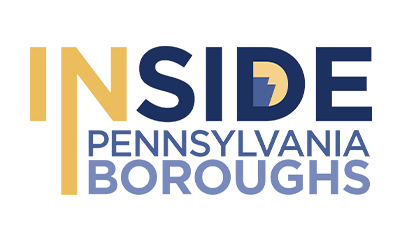Notice
EPA Launches New Initiative to Accelerate Lead Pipe Replacement in Pennsylvania to Protect Underserved Communities
January 27th, 2023
PHILADELPHIA (January 27, 2023) – Today, EPA announced a major new initiative to accelerate progress toward the Biden-Harris Administration’s goal of achieving 100% lead service line removal and replacement. The “Lead Service Line Replacement Accelerators” initiative was introduced during a White House convening with Vice President Kamala Harris and EPA Administrator Michael S. Regan, alongside state and local leaders celebrating the one-year anniversary of the Lead Pipe and Paint Action Plan. The new Accelerator will provide targeted technical assistance services to help underserved communities access funds from President Biden’s Bipartisan Infrastructure Law and replace lead pipes that pose risks to the health of children and families. The initiative is a partnership with the Department of Labor, Connecticut, Pennsylvania, New Jersey, and Wisconsin and will work with 40 communities across those states in 2023.
“The science is clear—there is no safe level of exposure to lead,” said EPA Administrator Michael S. Regan. “EPA is committed to partnering with states and communities to protect children and families and ensure our nation's drinking water pipes are lead-free. Our Lead Service Line Replacement Accelerators demonstrate our commitment to ensuring every community has access to safe, clean drinking water. By leveraging the historic investment made possible by the Bipartisan Infrastructure Law, we are moving one step closer to achieving President Biden’s vision of 100% lead-free water systems for all.”
Through the Lead Service Line Replacement (LSLR) Accelerators, EPA will provide hands-on support to guide communities through the process of lead service line removals, from start to finish. This will include support in developing lead service line replacement plans, conducting inventories to identify lead pipes, increasing community outreach and education efforts, and supporting applications for Bipartisan Infrastructure Law funding. As a result, more communities will be able to access their fair share of federal funds to secure a lead-free future.
Partnership is core to the LSLR Accelerators initiative. EPA will collaborate each step of the way with Connecticut, Pennsylvania, New Jersey, and Wisconsin and applauds their leadership in seeking innovative new ways to accelerate lead pipe removal. The Accelerators initiative will support these states in more strategically deploying funding from the Bipartisan Infrastructure Law (BIL) for lead service line replacements while developing best practices and creative approaches that can serve as a roadmap for the rest of the country. As this program moves forward, EPA and the Department of Labor will collaborate to provide tools aimed at increasing job quality standards, equity, and resources to accelerate the development of the skilled water workforce needed to undertake these community and system-wide lead service line replacement programs.
“Pennsylvanians have a constitutional right to clean air and pure water, but far too many communities here in Pennsylvania suffer from old and outdated lead pipes that endanger the health of our children and families,” said Pennsylvania Governor Josh Shapiro. “My Administration is ready to work with President Biden, Vice President Harris, and our federal partners to make life-saving investments that will deliver clean drinking to families across the Commonwealth, especially in communities that have been left behind for too long. Working with our federal partners, we can rebuild our infrastructure, create good-paying jobs, and guarantee that constitutional right holds for all Pennsylvania, regardless of their zip code.”
“Too many people and families in Pennsylvania and across the Nation don’t have reliable access to safe drinking water. That’s unacceptable. But thanks to the infrastructure law, underserved communities in our state will be eligible to replace harmful lead pipes faster than we thought possible. I will keep working with the Biden-Harris Administration to ensure that all Pennsylvanians can access the clean drinking water they need to live healthy lives,” said U.S. Senator Bob Casey (D-PA).
“This initiative is a home-run to provide clean drinking water to communities in Pennsylvania and throughout the region. The Infrastructure Investment and Jobs Act’s unprecedented investment in water and sewer lines will help build on previous progress and ensure that all communities, including the most vulnerable and forgotten, have access to safe water systems,” said U.S. Senator John Fetterman (D-PA).
“EPA’s partnership with Pennsylvania will go a long way in helping thousands of small drinking water systems begin to address aging lead pipes and ultimately provide safe drinking water to their communities,” said EPA’s Mid-Atlantic Regional Administrator Adam Ortiz. “This historic funding is going to improve lives and we’re eager to get started in the Commonwealth.”
The LSLR Accelerators initiative represents another step forward by the Biden-Harris Administration to achieve 100% lead free water systems. President Biden’s Bipartisan Infrastructure Law invested an unprecedented $50 billion in the nation’s water and wastewater infrastructure, including $15 billion dedicated to lead service line replacement and $11.7 billion of general Drinking Water State Revolving Funds that can also be used for lead service line replacement. And in 2021, with the boost from these water infrastructure investments, the Biden-Harris Administration released its Lead Pipe and Paint Action Plan. EPA is committed to this work and using every tool available— statutory authority under the Safe Drinking Water Act, technical assistance, funding for lead service line replacement, and more—to protect all Americans from lead in drinking water.
With the help of Bipartisan Infrastructure Law funding, EPA is strengthening its technical assistance efforts in order to ensure every community gets its fair share of this historic investment. For more information about water technical assistance for communities and the Lead Service Line Replacement Accelerators, please visit https://www.epa.gov/water-infrastructure/water-technical-assistance.
Additional Quotes:
“One intention of the bipartisan Infrastructure Investment and Jobs Act was to modernize our region so that our communities are not just better connected but better protected — and I’m glad to see these historic investments being used to replace lead pipes in Pennsylvania,” U.S. Representative Madeleine Dean (D-PA, 4th) said. “Clean water is a right, and every community deserves access to clean and safe drinking water. I’m grateful to the Biden-Harris Administration and the EPA Mid-Atlantic Region for helping to create better environments for underserved communities in our commonwealth.”
“I’m proud to have voted for the Infrastructure Investment and Jobs Act, and its funding to address lead pollution in our water is one of the many reasons why I voted for this law,” said U.S. Representative Dwight Evans (D-PA, 3rd).
“It’s unacceptable that any Pennsylvanian still has to deal with lead-contaminated water pipes and faucets,” said U.S. Representative Chrissy Houlahan (D-PA, 6th). “In my community, the cities of Reading and Coatesville have contended with this public health issue for decades, particularly in rental properties. I look forward to partnering with the EPA on their Lead Service Line Replacement Accelerators initiative and collaborating with the Administration to deliver these vital federal resources from the Infrastructure Investment and Jobs Act to Pennsylvania’s Sixth Congressional District.”
"I'm thrilled to see funding from the Bipartisan Infrastructure Law flowing into Pennsylvania to address lead contamination in our water supply," said U.S. Representative Mary G. Scanlon (D-PA, 5th). "Investing in the health of Pennsylvania’s children and families is one of my highest priorities, and I am proud to help our most underserved communities tap into the financial and operational assistance needed to identify and replace lead service lines."
“Drinking a glass of water from your own sink or giving your children a bath in your own home should not constitute a health risk, which is why it is urgent to deploy the Bipartisan Infrastructure Law’s investment in replacing lead pipes across the United States. The EPA’s collaborative Lead Service Line Replacement Accelerators initiative will give communities across Pennsylvania the tools and resources they need to identify and replace dangerous lead service lines,” said U.S. Representative Susan Wild (D-PA, 7th)






